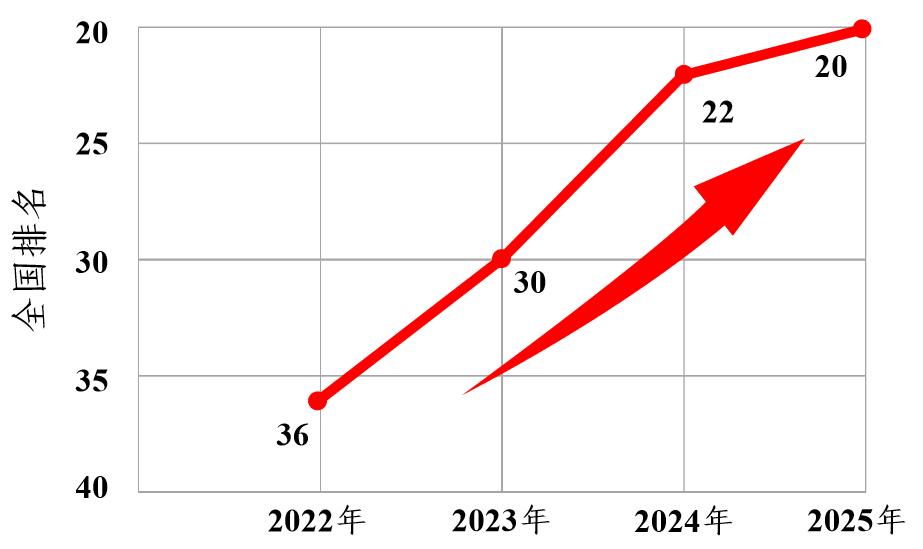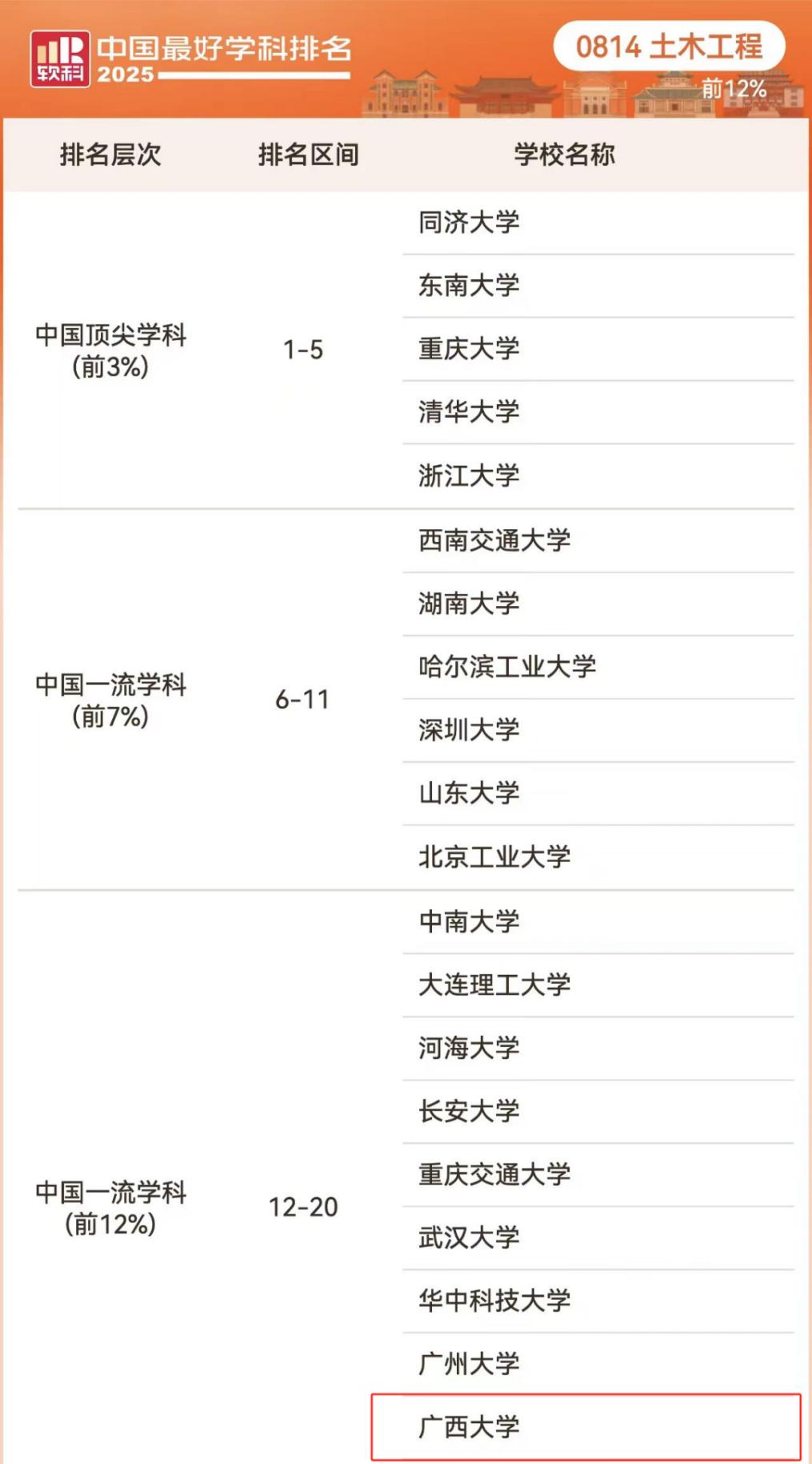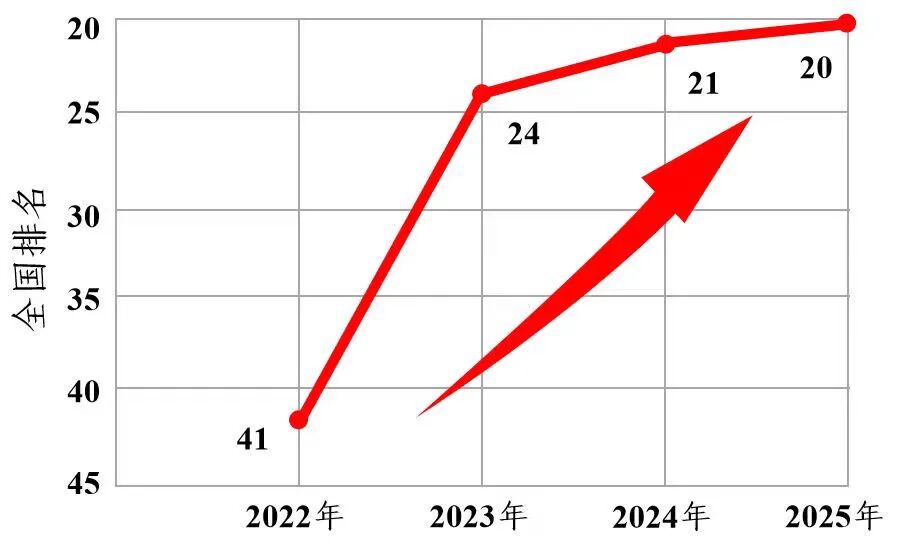On October 15, ShanghaiRanking released the “2025 Global Ranking of Academic Subjects”. Among approximately 560 universities nationwide offering civil engineering programs, GXU’s Civil Engineering discipline has entered the national top 20 for the first time (the top 20 includes 17 “Double First-Class” universities). The ranking has risen steadily for three consecutive years, setting new records each year and improving by 16 places compared to 2022.

Figure 1: Ranking of GXU’s Civil Engineering Discipline in ShanghaiRanking (2022-2025)

Figure 2: Top 20 Universities in Civil Engineering in the “2025 Global Ranking of Academic Subjects”

Figure 3: Ranking of GXU’s Civil Engineering Major in ShanghaiRanking (2022-2025)
In recent years, GXU has established a discipline development framework driven by faculty leadership, platform support, and the dual engines of talent cultivation and scientific research innovation, which has led to systematic breakthroughs in discipline construction. The continued upward trajectory of the ranking strongly reflects GXU’s solid strides in connotative development and the steady enhancement of its overall strength in the field of civil engineering. Looking ahead, GXU will maintain its momentum, strengthen synergy across departments, and continue to enhance the core competitiveness of the discipline, striving for higher-quality development of Civil Engineering.
According to reports, the “2025 Global Ranking of Academic Subjects” is one of the most influential subject evaluation systems in China. It adopts the first-level discipline categorization outlined in the “Catalog of Disciplines and Majors in Postgraduate Education (2022)” promulgated by the Academic Degrees Committee of the State Council and the Ministry of Education. The ranking system includes five major indicator categories—Talent Cultivation, Research Platforms & Projects, Awards & Achievements, Academic Publications, and High-Level Talent—with 18 sub-indicators and over 70 objective and quantifiable metrics to reflect subject competitiveness. All data are sourced from third-party platforms such as the Ministry of Education, Ministry of Science and Technology, National Natural Science Foundation of China, and both international and domestic academic databases.
 Home
>
News & Events
>
News
Home
>
News & Events
>
News
 Home
>
News & Events
>
News
Home
>
News & Events
>
News




